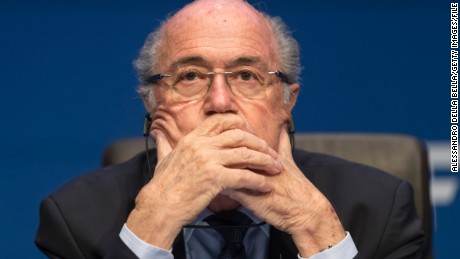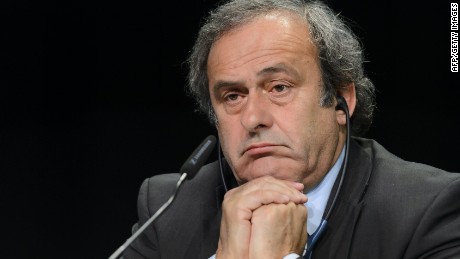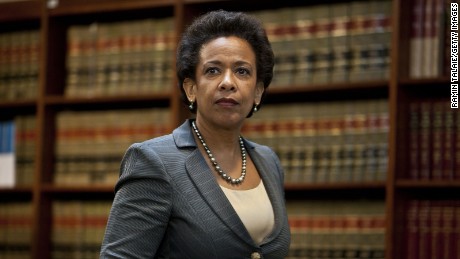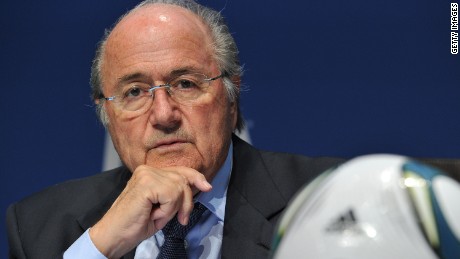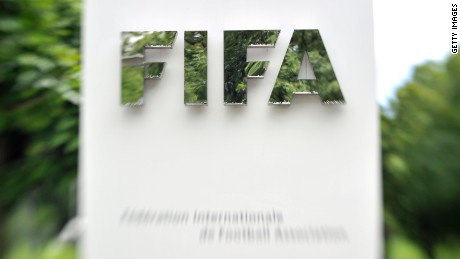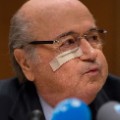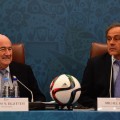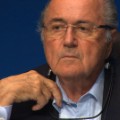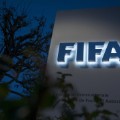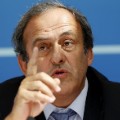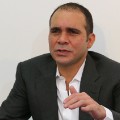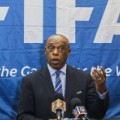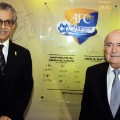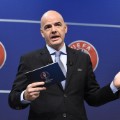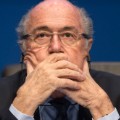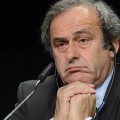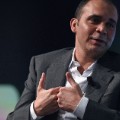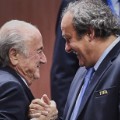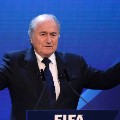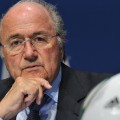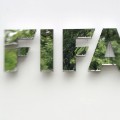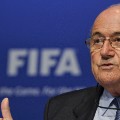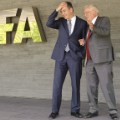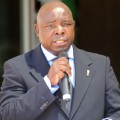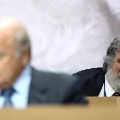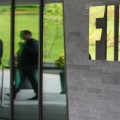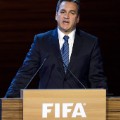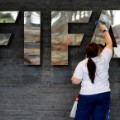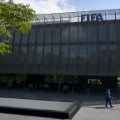(CNN)If things look bad for FIFA -- Sepp Blatter seemingly on his way out as president while an FBI corruption probe gathers pace -- they might be about to get a lot whole lot worse.
As the corruption crisis engulfing FIFA shows no sign of ending, a doomsday scenario for the organization would mean having a large portion of its assets seized by world banks -- leaving it unable to run its operations, and potentially scaring off sponsors -- according to lawyers in the UK and U.S.
In a blog headlined "Liquidate FIFA?," Guy Thomas, a British insolvency lawyer with an expertise in sport, speculates that a lack of leadership at FIFA -- combined with the long arm of U.S. federal authorities -- could completely handcuff the organization.
"The basic operation of FIFA is to run world football," Thomas told CNN after we contacted him following the publication of his blog "and it needs money to do so."
Including its showcase World Cup tournaments, FIFA hosts 10 men's and five women's tournaments overall. They include youth tournaments, club tournaments, and even a beach soccer tournament scheduled for July in Portugal. The FIFA Women's World Cup is also underway in Canada, featuring teams from 24 countries.
Thomas pointed out that U.S. jurisdiction over money fraud can stretch far and wide. Not only that, but regulatory bodies in other countries may follow suit with their own investigations, he wrote.
So far, the UK's Serious Fraud Office (SFO) has not launched its own inquiry into FIFA's financial matters, but it is monitoring the situation closely.
"The SFO continues actively to assess material in its possession and has made plain that it stands ready to assist continuing international criminal investigations," read an emailed statement to CNN regarding the FIFA scandal.
Thomas's concern, however, is that the U.S. Department of Justice (DOJ) could pursue the widest jurisdiction of its legal power, effectively crippling FIFA from staging tournaments and -- crucially -- luring sponsors.
"These two powerful forces might start bumping up against each other," he says. "We're now in the run-up to (World Cup) 2018. There's a whole range of things that need to be contracted and tidied up, and (sponsors) are going to be hesitant about that."
"If you're Visa -- notwithstanding embarrassment about all this stuff -- you would be expecting to ramp up your relationships with the TV companies and the stadia, and all the other stuff.
"If you can't provide details on 2018, are you going to be committing to that now?" he asks.
FIFA would not comment on the ongoing investigation; its corporate partners and sponsors include Visa, Coca-Cola, Budweiser, McDonald's, Hyundai and Adidas.
In a strongly worded statement in late May, Visa called on the world's premier soccer organization to "take swift and immediate steps" to clean up its act.
"[I]t is important that FIFA makes changes now," Visa said. "Should FIFA fail to do so, we have informed them that we will reassess our sponsorship."
A U.S. lawyer, however, doesn't see matters turning that extreme, though he pointed out the threat of freezing assets was a powerful bargaining tool.
"The (U.S.) government doesn't really want to interrupt businesses before criminal trial," says Thomas Ajamie, managing partner at Ajamie LLP, which specializes in financial fraud. "It is kind of against its policy."
Instead, according to the Houston, Texas-based lawyer, it's likely that FIFA officials are currently in talks with prosecutors about what little money will be accessible while criminal investigations are completed, so that it can continue to run as an organization.
"At a point like this, what would normally happen would not be public," says Ajamie, who co-wrote the book, "Financial Serial Killers: Inside the World of Wall Street Money Hustlers, Swindlers, and Con Men."
"It would be a bunch of prosecutors sitting around and talking to people, and saying, look we can freeze this, and we can freeze that and shut you down, but in return, if you put (a large sum of money) in some kind of (frozen) account, we'll let you fund your operation," he explains.
One question sure to be grating on the minds of FIFA accountants is exactly how far the DOJ can take matters.
"The justice department's jurisdiction can reach very far," says Ajamie, explaining that a surprisingly high number of global financial transactions are diverted through banks in New York, which is really all it takes to trigger a DOJ probe.
"I guarantee you there will be money that touched US banking somehow, which will give the Feds jurisdiction, which will give them the ability to prosecute if they want to and to the full extent that they want to," he says.
Once FIFA assets are seized in the U.S., it would be a matter of the DOJ putting pressure on overseas banking institutions -- which are all too wary of tripping up U.S. banking fraud allegations -- to freeze FIFA accounts, according to Ajamie.
"In this kind of a case, with this kind of profile, the ability of odds of that happening are very high," he says.
Thomas concurs: "If you are following the money, then there will be (FIFA) accounts all over the world, and there will be instances of accounts in any jurisdiction."
The DOJ declined to comment for this article.
Thomas notes that even FIFA accounts in its home base of Switzerland are subject to American scrutiny, citing the UBS tax evasion scandal which broke in 2008 and led to major reforms in Swiss bank secrecy policies.
Indeed, Switzerland's attorney general, Michael Lauber, has launched criminal proceedings related to the controversial 2018 and 2022 World Cup bids.
Just why the U.S. is spearheading the criminal investigation on FIFA's banking -- despite its limited history in world football -- is perhaps a mystery to many.
Much of it has to do with America's leadership role when it comes to financial reform, according to Ajamie.
"The U.S. prosecutors are very aggressive," he explains. "Why did the US prosecutors start going after the tax evasion and non-reporting of income, and then suddenly every other country woke up and said, Oh wow, we're losing billions of dollars in tax revenue too?"
While FIFA works on its strategy to ensure its bank accounts are not frozen worldwide, Thomas believes both Russia and Qatar will stage the 2018 and 2022 World Cup.
FIFA has said that there are no legal grounds for it to take the 2018 World Cup from Russia or the 2022 event from Qatar. Both countries deny any wrongdoing.
Thomas thinks Russia's 2018 bid is safe, if only because it is too late to do anything about it.
Qatar's bid -- which has been moved to the winter to avoid the soaring summer heat -- is another matter, however.
"My gut feeling says there are a lot of forces out there -- especially European vested interests -- that were never keen on November and December matches, so will quite happily use this to try and displace Qatar 2022," he says, while suspecting that despite the pressure, Qatar will ultimately still host the event.
Thomas also believes Blatter won't face jail time.
"That is more based on a demonstrable ability to either delay off or slide away from any prior challenges than any facts underpinning the investigations that FIFA currently faces."
Ajamie, however, is hedging his bets. "Someone will go to jail," he says. "But I'm not sure who yet."













